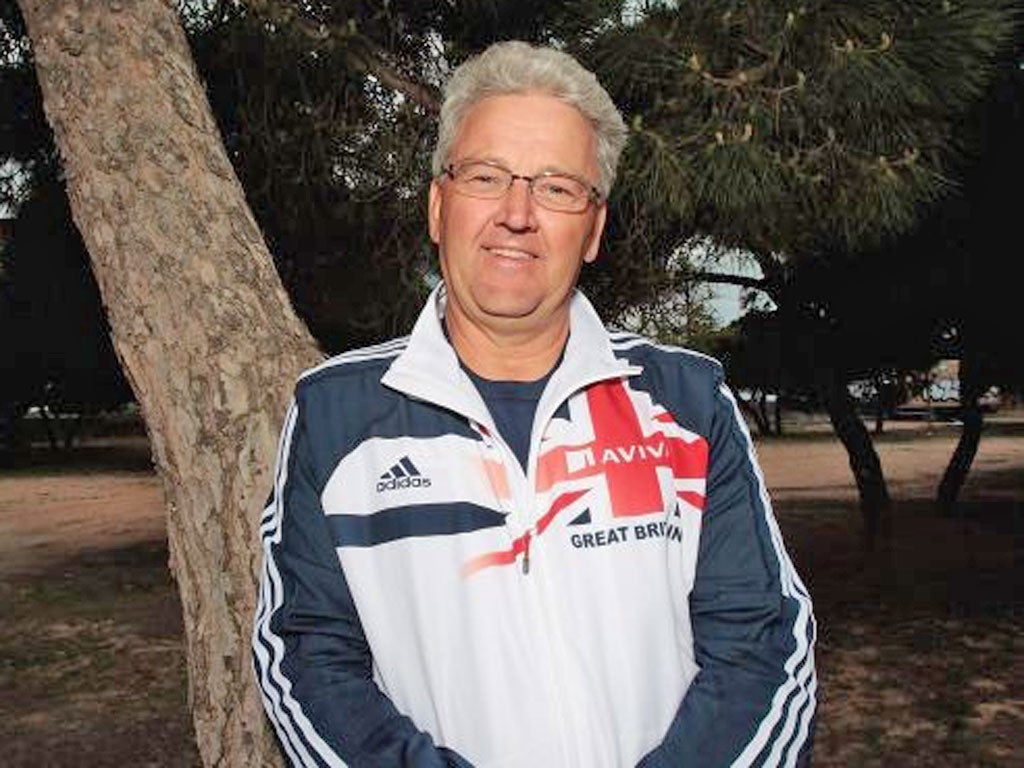Eriksson is ever ready to guide athletes to golden Games
Former skater heads track-and-field team's pursuit of glory at the Olympic Stadium

Your support helps us to tell the story
This election is still a dead heat, according to most polls. In a fight with such wafer-thin margins, we need reporters on the ground talking to the people Trump and Harris are courting. Your support allows us to keep sending journalists to the story.
The Independent is trusted by 27 million Americans from across the entire political spectrum every month. Unlike many other quality news outlets, we choose not to lock you out of our reporting and analysis with paywalls. But quality journalism must still be paid for.
Help us keep bring these critical stories to light. Your support makes all the difference.
As a one-time rival of Eric Heiden, Peter Eriksson appreciates the size of a challenge. In Heiden's case, they were the 27-inch tree-trunk thighs that powered the American to all five speed skating medals at the Winter Olympics at Lake Placid in 1980.
At 59, Eriksson is the coach in charge of the Great Britain team who start the track-and-field programme at the Paralympic Games today with great expectations on their shoulders. In his youth, the Swedish-born Canadian citizen was a speed skating rival and training partner of the formidable Heiden, who went on to become a Tour de France cyclist with the 7-Eleven team.
"I used to train with Eric in Madison, Wisconsin," Eriksson recalled. "It was like a big family, all the speed skaters training together.
"Eric was an exceptional athlete. It was hard to keep up with him. I actually skated against him in one of his world record races."
Eriksson also skated in two sprint World Championships. He finished 10th in the 500m in 1977.
Surely the experience of having competed at global level, and against an athlete regarded as one of the all-time greats, must be a help when it comes to his latest sporting mission: guiding the British Paralympic track-and-field team to a top eight finish?
"Well, yeah it does," Eriksson said. "The other thing that helps is that I started in athletics in 1980. I was an apprentice coach for the Swedish track-and-field team at the Moscow Olympics in 1980.
"Immediately after I was out of speed skating I was into track. I've been around in major events since 1980 – Paralympics and Olympic Games, World Championships and so on."
Eriksson is too modest to mention it but he happens to be the world's most successful Paralympics coach. He guided the Canadian wheelchair racer Chantal Peticlerc to 14 gold medals in four Games – in the process elevating her to superstar status in his adopted homeland.
In 2008 Peticlerc was awarded the Lou Marsh Trophy, the Canadian equivalent of the BBC Sports Personality of the Year award. Eriksson has enlisted her services as a mentor and coach in the build-up to the home Games – all part of a no-stone-unturned approach that has helped to transform the British Paralympic track-and-field squad.
In Beijing four years ago, Britain finished 18th on the athletics medal table with 17, just two of them gold.
At the International Paralympic Committee World Championships in Christchurch last year they were third in the medal table, behind China and Russia. They won 38 medals, 12 of them gold.
UK Athletics' decision to appoint Eriksson as Paralympic head coach in February 2009 and furnish him with the same level of support as Olympic head coach, Charles van Commenee, has paid tangible dividends already. "It's gone really well," Eriksson acknowledged. "I think we've stepped up the game.
"Our targets were set long ago. In 2008, the team finished 18th in the rankings, with two gold medals. We said from the start that our goal was to be top 10 at the World Championships in 2011, top eight at the Paralympics in 2012, and then move up to top three in 2016.
"To finish top eight in London we'll need five to eight gold medals approximately, and 23 to 28 medals in total. It is a big hike up from Beijing but we need to live up to the investment that UK Sport has given us.
"They have given us money to perform better and we need to live up to that investment. It's Lottery funding. It's people's taxes that we're living off."
Join our commenting forum
Join thought-provoking conversations, follow other Independent readers and see their replies
Comments